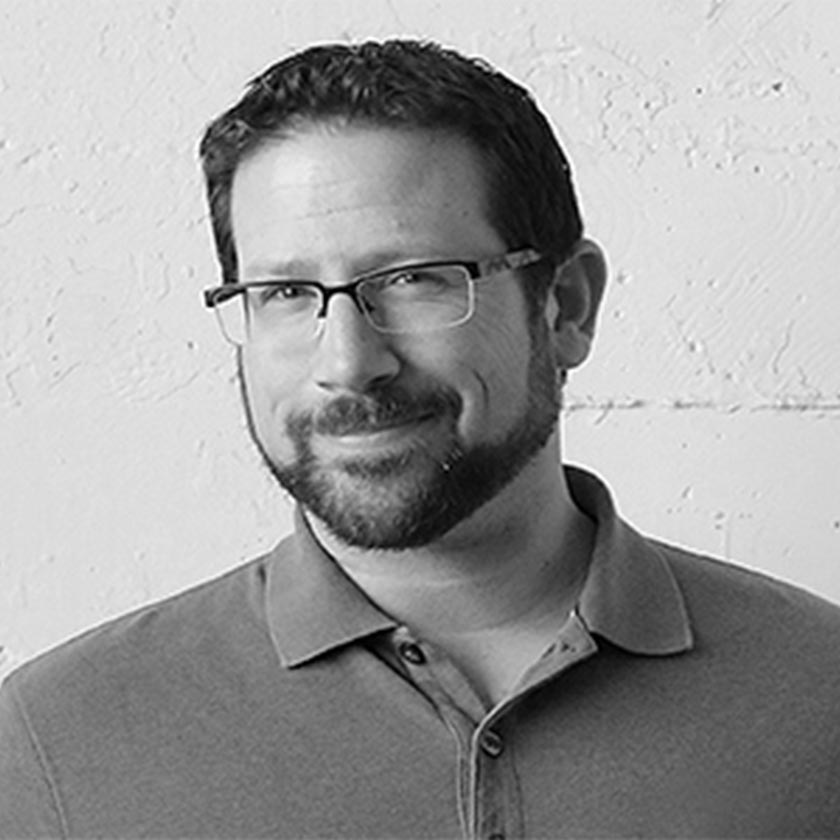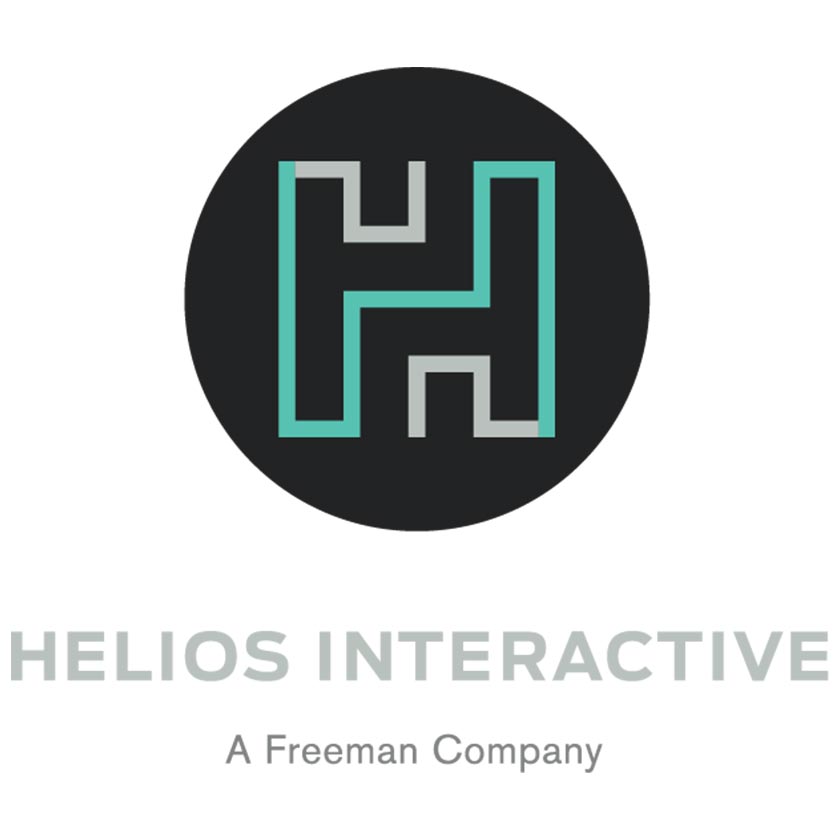
Helios Interactive Technologies co-founder Michael Schaiman BA '98 studied political science and history as an undergraduate at UCSB and marketing for his graduate degree at Pepperdine University, but his role models were in technology and law. The first inspiration for the San Carlos, CA native was his father, a criminal defense attorney. "My dad's ability to persuade a jury definitely played a part in influencing my career," he recalls. "Growing up, I remember going to watch him try cases in front of large groups of people and trying to sway them to his cause. I think that must have carried over into my own career and overall direction . . . presenting to large groups and being a part of the sales process has always been something I've enjoyed. As an entrepreneur, you're selling all day, every day- whether to clients, vendors, partners, investors, or even prospective employees."
Today, Helios is part of Freeman, the world's largest brand experience company and Schaiman, is its Managing Director and CEO. The company develops interactive experiences for consumers in the retail and events sectors. Among the technologies Helios employs are touch, gesture, augmented reality, and virtual reality. Its clients include iconic brands from McDonald's and Target to VISA and YouTube.
While Schaiman remains a marketer, the names he cites as inspirations today are associated are primarily associated with engineering and technology. When he kicks off Silicon Valley Gaucho Networking Night with a talk at the University Club of Palo Alto on December 4, Schaiman will share experiences from the worlds of business and technology. His goal is "to give folks some insight into potential pitfalls they may encounter in their own entrepreneurial journeys, as well as information on AR, VR, AI, and other tech and how that could impact individuals personal and professional lives."
Let's begin with your educational experience. How did you choose UC Santa Barbara?
Well, the rest of my family (mom, dad, sister, cousin) had all gone to University of Colorado Boulder - and I was supposed to be a legacy Buffalo. That was, until I went on some school visits to southern California. The minute I hit the campus, saw the beautiful environment, beach, and [met] the students, my decision was made. And, I was nearly disowned.
What were the biggest takeaways from your time here?
UCSB has had a really powerful ongoing effect on my career. While the educational aspect of school was definitely a major factor in my becoming who I am today, it was really the relationships I formed with fellow students and the bond I feel with other Gauchos that I meet 'in the wild' that had the most profound impact on my life. The people I met at UCSB remain my closest friends- and the group of us that lived together in the dorms, IV, and beyond are still extremely tight. I've learned more from that group and the experiences we have had together than anywhere else. And while happy hours and Saturday nights out have turned into play dates and more family oriented activities, I value their friendship, and that bond, more than ever.
Are there ways in which your educational training in political science and history are applicable to the work you do today?
You know, PoliSci and History were always fascinating subjects for me - at one point during my time in SB I thought I might end up becoming a lobbyist. Entrepreneurship, however, is pretty far from the political arena. That said, having a good foundation of knowledge to pull from and being well rounded means you can strike up a conversation with anyone, and talk about anything. Breadth of knowledge (including the business degree) has allowed me to speak intelligently about a wide variety of subjects during my entrepreneurial career, which allows you to connect more deeply with your managers and teams running various parts of the business.
Can you describe what prompted you to launch Helios and describe what the company does in layperson's language?
Helios is an experience design studio that creates interactive digital experiences for brands, allowing them to connect more deeply with their consumers. We typically design and develop digital applications for use in the events space, working anywhere from tradeshows and mobile tours to Super Bowls and Olympics. A typical activation for us would be creating a brand experience - say, for Hyundai at the Super Bowl, where we utilize Augmented Reality or another technology platform to create a one-of-a-kind experience allowing consumers to interact with celebrity endorsement partners. We're unique in that we have the ability to develop expertise, in a short timeframe, of just about any latest/greatest technology that is released - allowing us to provide unique ways for brands and consumers to communicate with one another. Whether it is AR, VR, gesture-based, or some other tech - we will be able to utilize that medium in our efforts.
We launched Helios after a previous company, Reactrix, hit some tough times and shut doors in 2008. At the time, I had been running the event sales business (Reactrix was a gesture-based projection technology). The vision evolved over time from ‘take a few gigs to stave off unemployment’ to ‘maybe there is a real business here.' My old clients kept calling me asking for some help, and we quickly realized that there was a market need for new technology in the events space. We were lucky enough to have a few high-paying clients and were able to launch the organization without any outside financing. Over 10 years we grew from a small group doing just enough to keep the lights on to over 50 employees and $10MM in revenue.
Your described how your education in multiple disciplines was applicable to your career but interestingly, it doesn't appear like computer sciences/tech/engineering was part of your training. Does their kind of thinking just come naturally to you or was it initially difficult to translate what you were looking for on behalf of clients to engineers who "spoke a different language"?
Yes, without the tech background it was really difficult to play in that world. The most challenging part was talent evaluation – we lived our first few years with guys we *thought* were good, but it turned out that as soon as we hired someone truly talented our existing team was exposed as pretty primitive. Definitely a large hurdle to overcome – and one we were able to tackle through a few smart hires that handled technical evaluations for us moving forward.
Can you provide a preview of your talk at the networking event?
My talk at the event will focus on my journey - both through large fundraising at my first company (the aforementioned Reactrix, where we raised $90MM+ of institutional investor money), and bootstrapping a smaller startup through the acquisition process. I'll punctuate the discussion with overviews of various technologies and how they are impactful to various consumer groups.
Are there any public figures who particularly inspire you?
I look at folks like Elon Musk/Steve Jobs and absolutely admire their innovation and creativity . . . but Reed Hastings at Netflix has consistently been ahead of the game, and his vision and ability to lead that organization has been particularly impressive and inspiring. That's not only in what they're currently doing - i.e. realizing that the entertainment media landscape is changing and identifying the need to create original content as a complement to licensed partner content (which they saw early on getting prohibitively expensive/going away due to competition), but also in correcting their mistakes (the aborted launch of their Qwikster initiative to separate their DVD/Streaming business - which was killed days after launch). He has continued to make smart and bold moves that are redefining how the world consumes content.
Can you offer any advice to soon-to-be and recent UCSB graduates who would like to follow in your footsteps in terms of your career path?
**The key to starting a business is cash flow. Push out those payments, and bring in those receivables - the ability to be able to manage that will make or break your business. In our early days, we subsisted on credit cards - since banks are unlikely to provide any significant financing or lines of credit against an unproven business. Credit cards, however, can provide you the ability to manage cash and were critical to our success (special thanks to Amex and their small business program!)
Another suggestion is to hire smart people. That might sound obvious, but let me be more specific - hire smart people no matter their background or expertise. You can plug a smart and motivated individual into just about any situation and they will succeed. I've found some of my best employees simply by identifying the 'doers' that I come across, whether meeting them at events, or through clients, or other means. Smart people will grow into whatever role you define for them. Experience matters less than intelligence.
Network is everything. When I was told that in my early career, I thought that it was all about going to networking events and meeting other executives. While that may be helpful, that isn't everything. Talk to your friends. Talk to family. Talk to friends of friends, and friends of your family. Chances are, there are connections to be made, and having an introduction from familiar ground goes a long, long way. And don't be afraid to ask for an introduction or suggestions - people typically like providing value and making connections and helping in some way.
Finally, you don't have to monetize everything. In my experience, those who try to assist - but are constantly looking for a 'finder's fee' or some tangible remuneration in return are lower priority folks. Those who do favors, and expect nothing in return are the ones you keep close to you. That is how you build strong relationships . . . if you keep things at a transactional level, you will always be at a client/vendor relationship, as opposed to being seen as a friend or partner. The latter has always proven to be of significantly higher value to me. So don't be afraid to sacrifice making a few bucks in the short term - playing the long game will win, every time.
Silicon Valley Gaucho Networking Night, Tuesday, December 4, 2018, 6:30-8:30PM at the University Club of Palo Alto. $10 ticket price includes apps (as in "appetizers"), Michael Schaiman's talk and time for networking with fellow Gauchos. Register for the event here.
